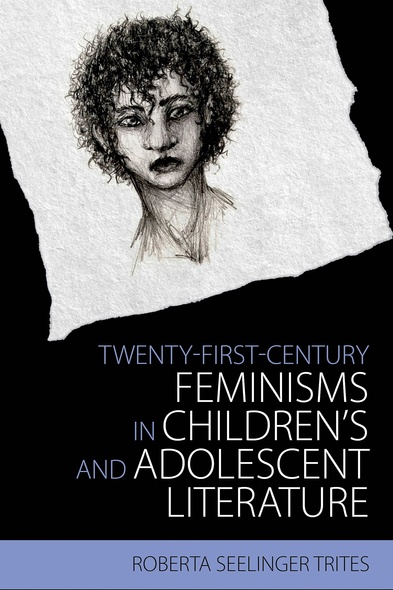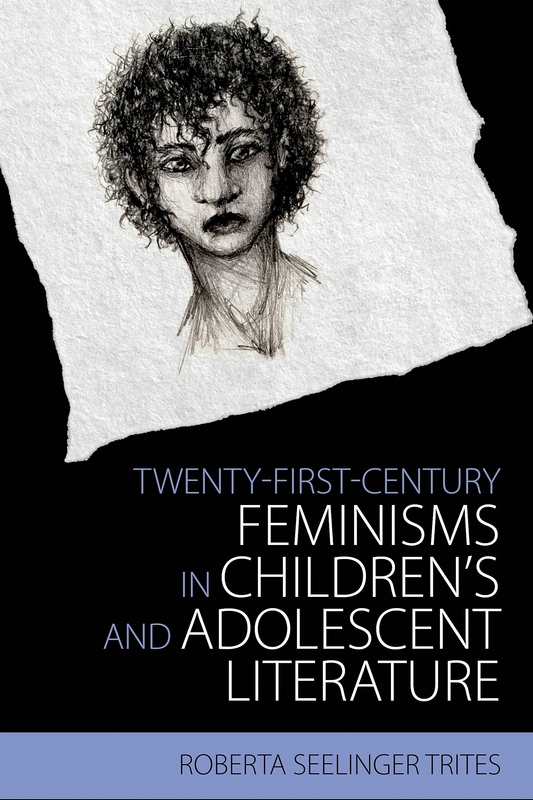Our shopping cart is currently down. To place an order, please contact our distributor, UTP Distribution, directly at utpbooks@utpress.utoronto.ca.

Twenty-First-Century Feminisms in Children's and Adolescent Literature
Over twenty years after the publication of her groundbreaking work, Waking Sleeping Beauty: Feminist Voices in Children’s Novels, Roberta Seelinger Trites returns to analyze how literature for the young still provides one outlet in which feminists can offer girls an alternative to sexism. Supplementing her previous work in the linguistic turn, Trites employs methodologies from the material turn to demonstrate how feminist thinking has influenced literature for the young in the last two decades. She interrogates how material feminism can expand our understanding of maturation and gender—especially girlhood—as represented in narratives for preadolescents and adolescents.
Twenty-First-Century Feminisms in Children’s and Adolescent Literature applies principles behind material feminisms, such as ecofeminism, intersectionality, and the ethics of care, to analyze important feminist thinking that permeates twenty-first-century publishing for youth. The structure moves from examinations of the individual to examinations of the individual in social, environmental, and interpersonal contexts. The book deploys ecofeminism and the posthuman to investigate how embodied individuals interact with the environment and via the extension of feministic ethics how people interact with each other romantically and sexually.
Throughout the book, Trites explores issues of identity, gender, race, class, age, and sexuality in a wide range of literature for young readers, such as Kate DiCamillo’s Flora and Ulysses, Jacqueline Woodson’s Brown Girl Dreaming, and Rainbow Rowell’s Eleanor & Park. She demonstrates how shifting cultural perceptions of feminism affect what is happening both in publishing for the young and in the academic study of literature for children and adolescents.
[A] remarkable book . . . [Trites] eloquently proves that the study of children’s and adolescent literature has much to offer material feminism.
Twenty-First-Century Feminisms in Children’s and Adolescent Literature is a veritable roadmap of this literature. While my readings sometimes differ from Trites’s, her analyses are uniformly thought provoking and worthwhile.
Trites has provided us with a much-needed overview of how material feminism can inform both the writing of youth fiction and the critical analyses of these novels. Twenty-First-Century Feminisms is an engaging volume that welcomes readers to consider how their own material conditions impact on their work as critics and as human beings. It offers hope that by the time the next companion volume is needed, rather more progress will have been made.
While the twenty-first-century approach to children’s and adolescent literature is not without its faults, the breadth and range of feminisms present in recent novels reflect a growing consciousness that Trites captures in her text. Her accessible tone and impressive range of novels make this an appealing resource with far-reaching potential for future scholarship.
Trites’s work is an excellent exploration of the major theoretical branches of feminism in the twenty-first century, and her close readings of several recent adolescent and young adult novels demonstrates how theory and texts talk intimately to each other. What is particularly strong about Trites’s work is how accessible it is; this is a text easily approached by scholars and students alike.
At a time when feminism struggles to find an appreciative audience with young people, Twenty-First-Century Feminisms in Children’s and Adolescent Literature offers convincing arguments for its relevance. This is an important, thoughtful, and timely book that shows how contemporary feminisms inhabit literature written for children and adolescents. Trites deftly demonstrates the benefits of a material feminist critique (and self-reflexivity) through close reading of selected texts that engage with twenty-first-century feminist concerns regarding female empowerment amidst growing social, technological, and environmental challenges. The value of this book resides in the understanding it promotes, in its engagement with other critical studies, and in its commendable clarity.
In her elegant overview of thirty years of scholarship in feminist theory and children’s literature, Roberta Trites has accomplished—to use the phrase philosopher Sara Ruddick made famous in Maternal Thinking—the ‘preservation, growth, and acceptability' of the discipline. By applying evolving theories of ecofeminism, gender studies, critical race theories, and the ethics of care to the analysis of specific recent works of fiction for children and young adults, Trites has produced a wonderful new resource for scholars in the field. As a companion volume to Waking Sleeping Beauty: Feminist Voices in Children’s Novels, Trites’s Twenty-First-Century Feminisms in Children’s and Adolescent Literature demonstrates just how far both the literature and the discipline have come.
Twenty-First-Century Feminisms in Children’s and Adolescent Literature offers a crucial model for interrogating the representation of gender and sexuality in texts for young readers. Trites clearly establishes the stakes of her project, providing a compelling foundation for her shift from an interest in how middle grade and young adult literature offers discursive constructions of gender to why they have done so. . . . Perhaps most impressively, Trites balances a wide array of theorists and novels, deftly pairing well-known concepts and texts with those that are likely to be new (but no less valuable) to many scholars of children’s literature, childhood and girlhood studies, gender studies, and queer studies, among others.
Roberta Seelinger Trites is Distinguished Professor of English Emerita at Illinois State University. She is author of many works, including Waking Sleeping Beauty: Feminist Voices in Children’s Literature and Literary Conceptualizations of Growth: Metaphors and Cognition in Adolescent Literature.





